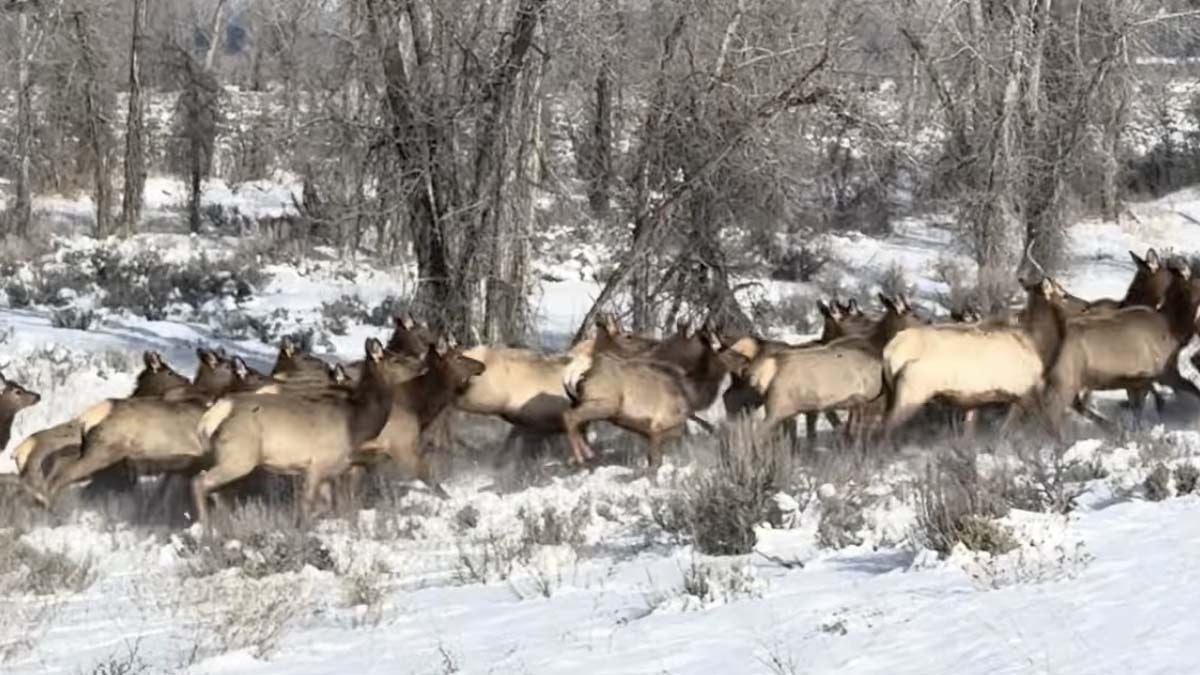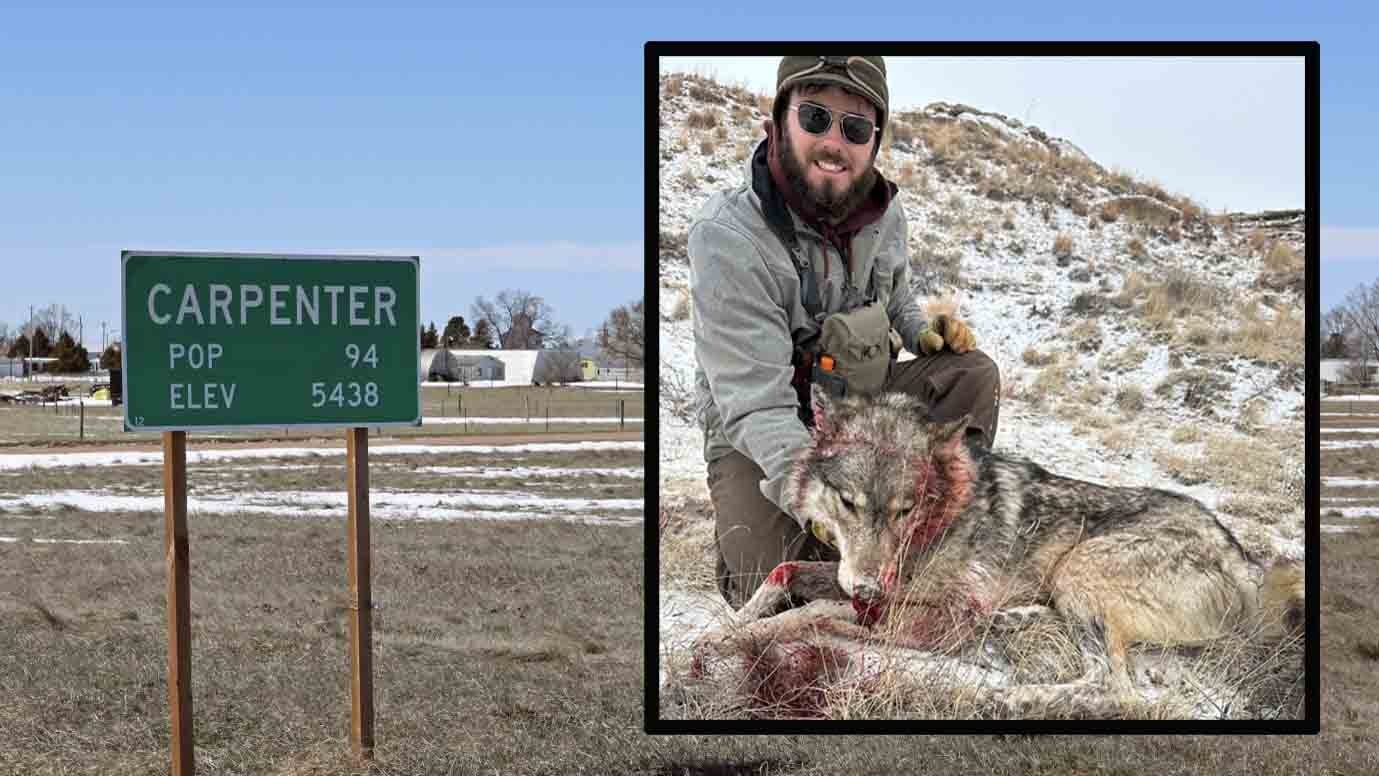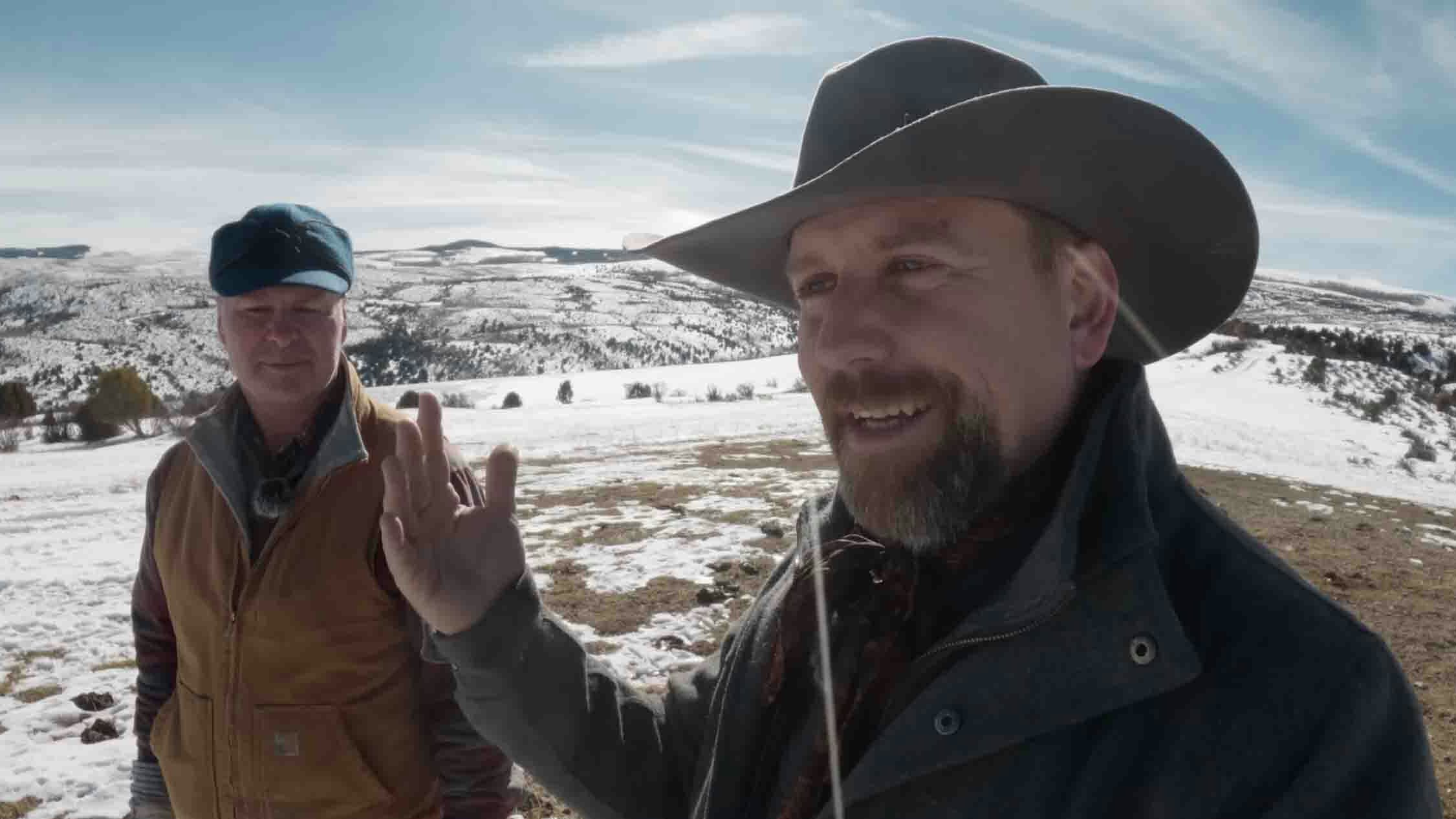Chronic pain has been a part of Teri Smith’s life since a head-on collision nearly killed her, and it makes big game hunting especially challenging.
But she wouldn’t have it any other way.
“There’s not a day of my life that I don’t know pain. I refuse to let the pain drag me down,” she told Cowboy State Daily.
Having a physical job in landscaping helps, she said.
“That’s kind of my theory, that once you get moving, you stay moving,” Smith said.
Wyoming’s New Point Person
Already an accomplished hunter in her own right, Smith hopes to mentor and inspire others. She was recently selected to be Wyoming’s first pro staffer for the 10 Can Inc. Christian Adventure Network. The organization specializes in arranging and hosting hunts for military veterans and first responders.
It was founded by Florida resident and Air Force veteran Matthew Burke and has branched out into other states.
Last year, the group offered to take Wyoming hunters on alligator hunts in Florida, in exchange for being taken on Wyoming elk hunts.
Burke recently went on such and elk hunt with Smith near Sheridan.
He said her “grit and determination” made her the obvious choice to represent 10 Can in Wyoming.
Smith said she’s excited about her new role. As pro staffer, she’ll be the primary point person for the organization in Wyoming.
“I’m still learning the process. I know I’ll be helping to host hunting camps, for women, children, veterans and first responders,” she said.
“Getting other women into hunting is important to me. And I have a soft spot for veterans,” Smith added.
Life Changes In An Instant
Smith has been close to death twice.
The first time was when she went through an extremely difficult childbirth in 1988 and was in labor for 36 hours.
She thought then that perhaps she’d faced the greatest trial of her life.
But then came one “very, very foggy” morning in 2001.
Smith grew up in Washington state and was still living there at the time. On that foggy morning, she drove to work along a stretch of highway she was familiar with, undaunted by the fog.
But a driver going in the opposite direction crossed the center line. The combined speed of the head-on impact with Smith’s vehicle was about 100 miles per hour.
It happened in an instant, she said.
“I had the awareness that something was coming at me. My last conscious thought was, ‘I’m f***ed.’ I closed my eyes and turned my head.”
‘I Flatlined Three Times’
She woke up four days later in a Seattle hospital, with her mother by her side.
“I just remember telling my mother, ‘Well, I’m not afraid of dying anymore,’” Smith said.
Her mother and others filled her in about the harrowing events on the day of the crash.
An ambulance took her from the scene of the crash to a hospital in small town nearby. But her injuries were too grave for that hospital to treat; she’d have to be life-flighted to Seattle.
The problem was, the weather was still too nasty for civilian flights. Luckily, a military Black Hawk chopper was available.
“I guess they decided to use that flight as a training exercise for the Black Hawk crew,” Smith said.
“Apparently, I flatlined three times that day. Once at the crash scene, once in the ambulance and once in the chopper,” she added.
As terrible as that day was, Smith learned there had been at least one humorous event while she was unconscious.
“I used to wear down vests all the time. And when they went to cut the vest off me in the ambulance, feathers went everywhere,” she said.
Her body has never fully recovered, despite numerous surgeries to her knees, face and other areas. Damage to her ear canal causes her to have occasional spells of vertigo.
There’s the near-constant pain “and arthritis, of course. Because I broke, well, a lot,” Smith said.
‘Where There’s A Will, There’s A Way’
Smith “grew up in hunting family” that also raised poultry on their small property. So, even as a small child, she was used to hunting and butchering meat.
Being able to go out hunting, process and pack out big game animals -- and do her own butchering -- remains important to her.
“There’s a sense of pride in going out and getting your own meat and putting it your freezer. It gives a sense of empowerment, and I want to share that,” she said.
She overcomes her physical challenges with the simple philosophy that “where there’s a will, there’s a way,” Smith said.
She hunts with her grandfather’s .30-06 Springfield rifle – with a traditional wooden stock cut to fit the typically longer arms of a man.
Over the years, Smith has learned to “drop my shoulder” so she can hold the rifle securely and get a clear sight picture through the scope.
She’s also found that using a game cart or a sled can save her from having to use a heavy backpack to get game meat out.
And, whenever possible, she also uses her horse.
“Do I still feel the pain? Yes. Does it cause issues Sometimes,” she said. “But I enjoy hunting, it keeps me alive.”
‘We’re Not Weak’
Smith hopes that she can inspire other women to hunt.
There has been an increase in the number of female hunters, but it’s still widely regarded “as a man’s sport,” she said.
She hopes to help change that perception.
“We’re not weak. If you look back at the cave man days, women hunted just as much as the men did. We can go after big game. We don’t have to be restricted to just hunting birds. That idea that ‘bird hunting is for the ladies.’ Well, why?” she asked.
“I’m just trying to remind women that we are capable, we are strong and we can do whatever we set our minds to,” Smith said.
Getting Better With Age
At age 54, Smith said she hunts as hard as she ever did, but she also goes about it more wisely.
“I might not take off all by myself with my horse way into the backcountry, like I would even five years ago,” she said. “That’s part of it, learning to hunt within your limitations.”
She’s got multiple game tags – for elk, mule deer, whitetail deer and antelope – to fill this fall.
“It’s interesting, the older I get, the more avid of a hunter I’ve become,” she said. “Now, I’m out there, and it’s me against the wild. And I’m serious about it. I’m thinking, ‘This is time, this is money. Let’s get something in the freezer.’”
Even so, unfilled big game tags aren’t wasted money, Smith added.
“Even if I don’t fill some of my tags, my money goes to the Wyoming Game and Fish Department, and that helps them keep it open for everybody to enjoy hunting,” she said.
Mark Heinz can be reached at mark@cowboystatedaily.com.









